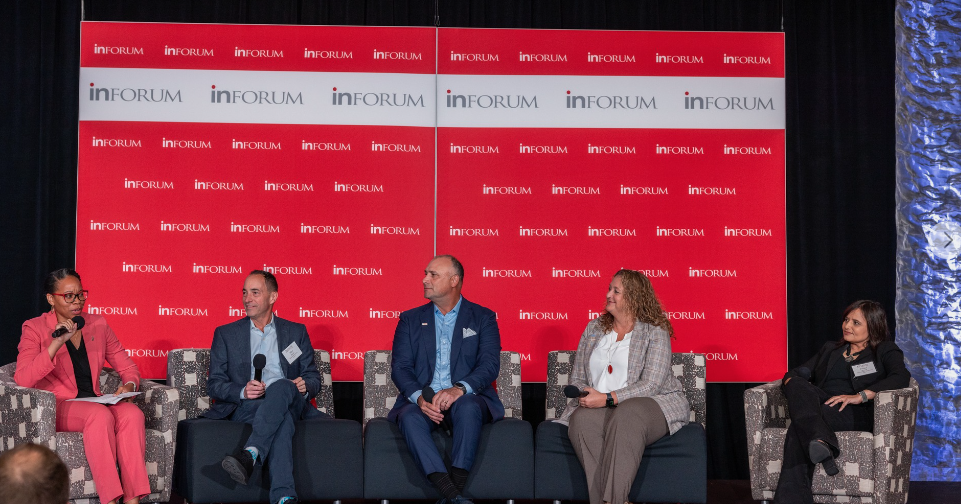Automotive Leaders Discuss Navigating the Shift to Mobility

Automotive always has been a technology-driven industry, but in the next ten years, there is likely to be more change in the industry than there has been in the last hundred. And much of that change will be taking place in Michigan. That shift – which moves automotive toward becoming a more sustainable industry – was the topic of a Sept. 15, 2023, breakfast, “Navigating the Shift to Mobility – With Detroit as a Leader,” hosted by Inforum, a nonprofit focused on accelerating women’s careers. The themes included diversity, new opportunities that come with and from young and emerging talent, the power of partnerships, and the future of mobility. Panelists were: Aruna Anand, President and CEO, Automotive Group Sector; head of architecture and networking, Continental North America Kristen Tabar, group vice president, Advanced Mobility Research & Development, Toyota North America Paul Thomas, president, Mobility in Americas, Bosch (effective Jan. 1, 2024), and Alan Wexler, senior vice president, strategy, and innovation, General Motors Justine Johnson, chief mobility officer for the State of Michigan, moderated the discussion. Our takeaways follow: Thomas: When you look for talent, look for talent that looks different from you. Different countries, beliefs, and perspectives, you have to look for talent that has diverse opinions on solutions. The world isn’t as simple as you think it is sometimes. Taber: When students look for a job, remember that it is not a one-and-done deal. You may think this is your passion and you work in this space, but what we see is that people evolve. That cross-pollination and common way to move throughout your career and experience different aspects of this new mobility solution. It’s a completely different landscape that requires different skill sets and backgrounds. Anand: We need to see ourselves in those positions that we are aspiring to be. If you do not have representation, then you don’t know what it’s like and you don’t have the confidence to do something because it is not done. We need to increase the pipeline. Then you understand the reasons why you can’t do this or what else you can do to fix it. Wexler: We see a world with zero crashes, zero emissions, zero congestion. Taber: It is about the products that we put out, how we operate our businesses, and the ripple effect on our supply chains. We need very clear, measurable methods so we are using similar yardsticks. Thomas: We want to invest in communities, we invest in Detroit and the Midwest very heavily to bring mobility people into our companies. We are also always on the diversity journey. You will never know when you are done because diversity is something that you always must work on. Anand: We tend to want to be perfect before we try new things. We find reasons to not be good at things. What is stopping us? We need that coaching, mentoring, role models, all of that together to build that pipeline better. Wexler: (Talent recruitment) really starts with the “why.” … We need skillsets from other industries. We’re becoming more technology-oriented … we pioneer the innovations that move and connect people to what matters, so it’s who wants to be part of that purpose and do something impactful. Taber: We have to understand that none of us is going to be able to move the technology forward by ourselves. It is going to take partnerships that we probably wouldn’t have thought of ever before. Anand: If we can provide an environment that is flexible, then the talents will be able to grow. Thomas: The ecosystem is so large and the opportunities to do different things are available to each one of you in the room. There is so much information out there on how to get involved in mobility. Wexler: There isn’t another industry that has the same opportunity to heal the planet. Experience the full event here. Be sure to subscribe to our newsletter for regular updates on sustainable business practices in and around Detroit.


